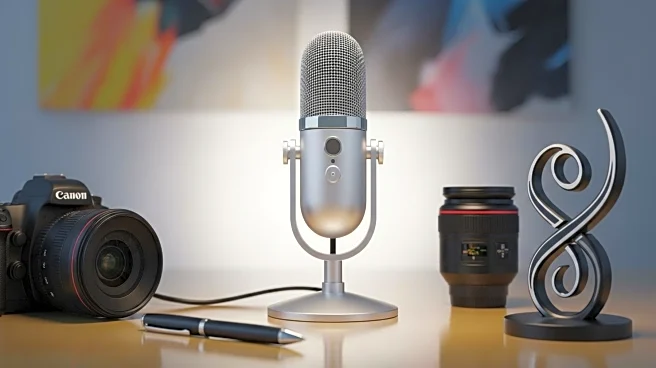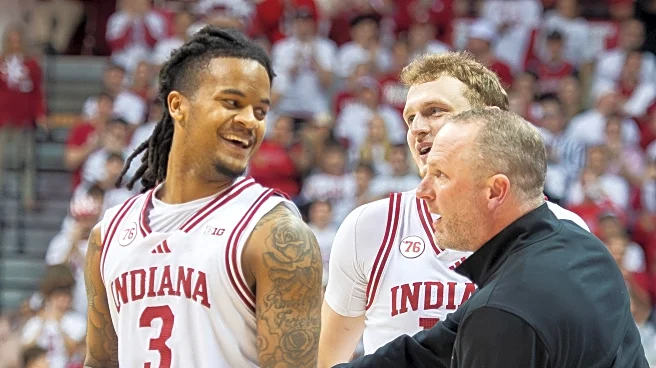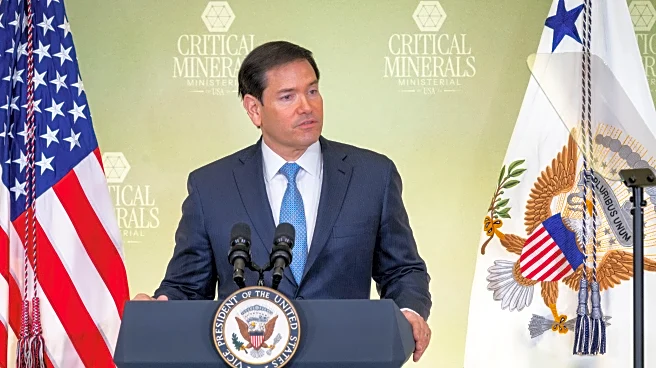What's Happening?
MIPCOM has announced a significant focus on the creator economy for its 2025 event, featuring a lineup of senior executives from major platforms such as YouTube and BBC Studios. Pedro Pina, VP of YouTube EMEA, and Jasmine Dawson, SVP Digital at BBC Studios, will engage in discussions with analyst Evan Shapiro. The event will include a creative hub, previously known as a producers hub, located on the beachfront, and a dedicated AI summit. This year's focus reflects a shift in traditional TV gatekeepers' strategies to leverage platforms like YouTube and TikTok. Executives from Dhar Mann Studios, Snapchat, Samsung TV Plus, TikTok, TUBI, and Luma AI will also participate. MIPCOM director Lucy Smith emphasized the arrival of the creator economy as a new era of storytelling, distribution, and monetization. Additionally, Sony Pictures Television will preview Peacock's 'The Miniature Wife' starring Matthew Macfadyen, marking its return to MIPCOM after eight years.
Why It's Important?
The focus on the creator economy at MIPCOM highlights a transformative shift in the media landscape, where traditional television is increasingly integrating digital platforms to reach broader audiences. This change is crucial for the industry as it adapts to new consumer behaviors and technological advancements. The involvement of major players like YouTube and TikTok signifies the growing importance of digital content creation and distribution. This shift could lead to new opportunities for content creators and media companies, potentially altering the dynamics of content monetization and audience engagement. The event serves as a platform for industry leaders to explore innovative strategies and collaborations, impacting how media content is produced and consumed globally.
What's Next?
MIPCOM's focus on the creator economy may lead to increased collaborations between traditional media companies and digital platforms, fostering new content creation and distribution models. Industry stakeholders are likely to explore partnerships that leverage the strengths of both traditional and digital media. The discussions and insights shared at the event could influence future media strategies, encouraging companies to invest in digital content and technology. As the creator economy continues to evolve, media companies may prioritize digital-first approaches, impacting content production, marketing, and audience engagement strategies.
Beyond the Headlines
The emphasis on the creator economy at MIPCOM could have broader implications for cultural and ethical dimensions in media. As digital platforms become more central to content distribution, issues such as content moderation, intellectual property rights, and creator compensation may gain prominence. The shift may also influence cultural narratives, as diverse voices and perspectives find new avenues for expression through digital media. Long-term, this could lead to a more democratized media landscape, where content creation is accessible to a wider range of individuals and communities.











